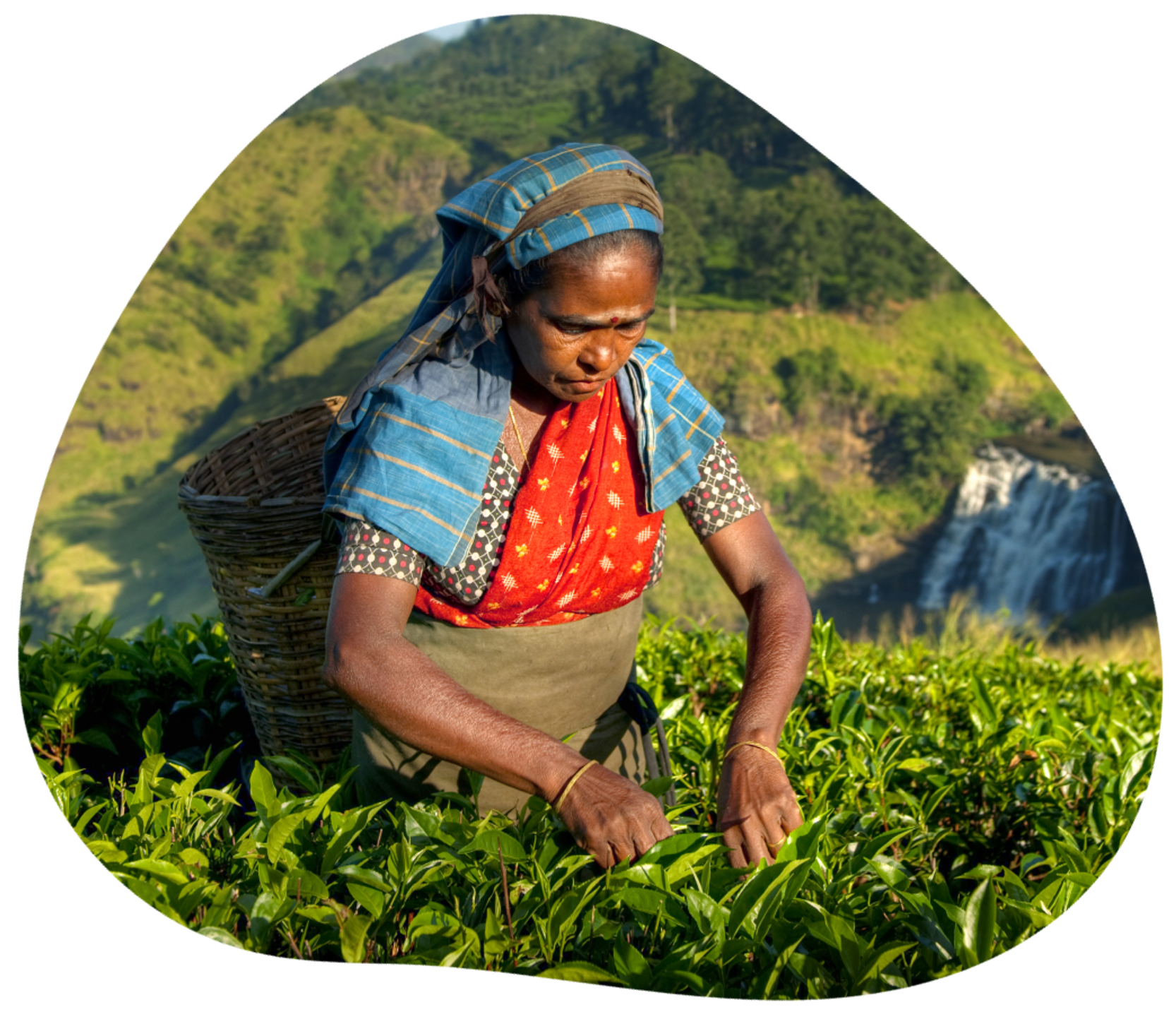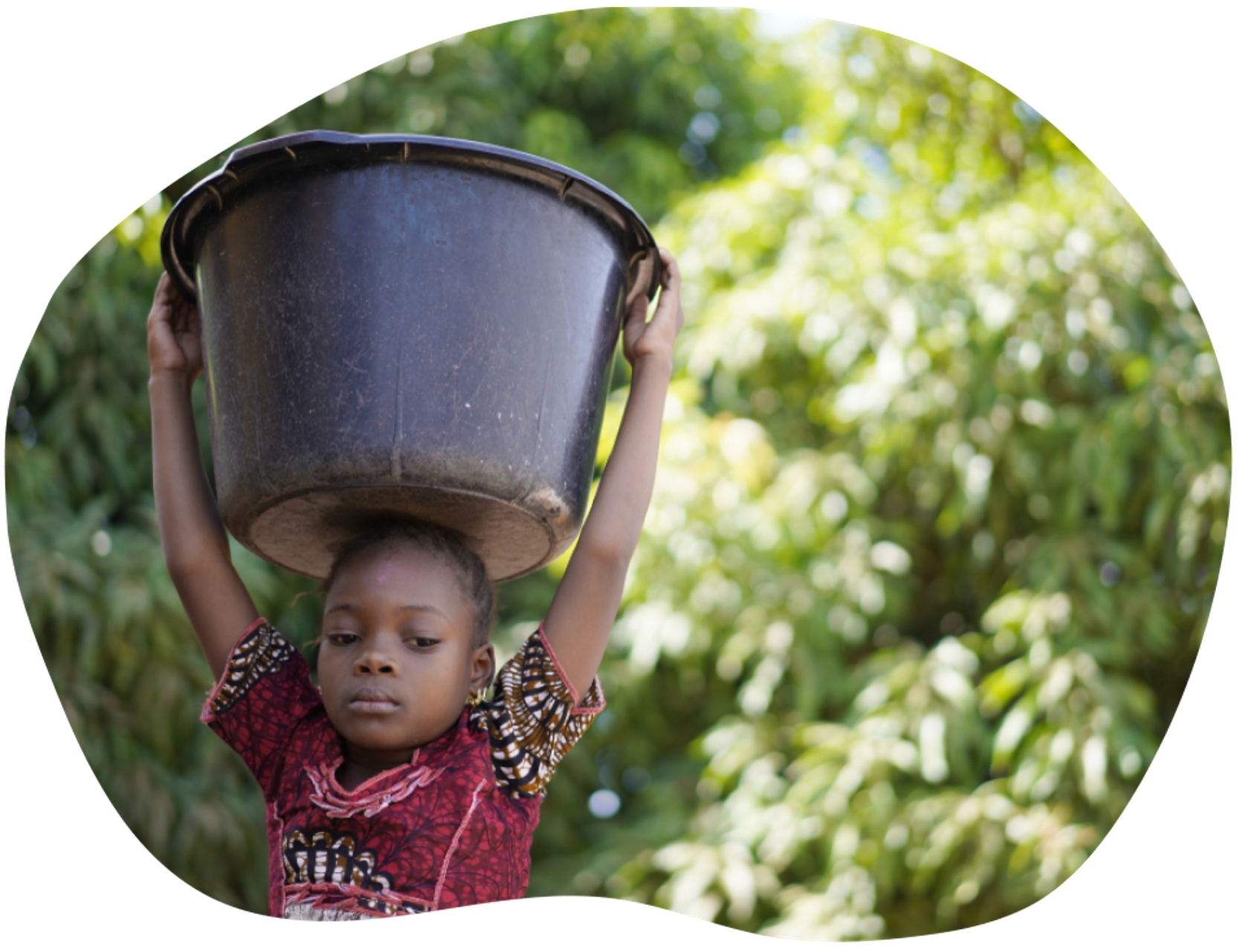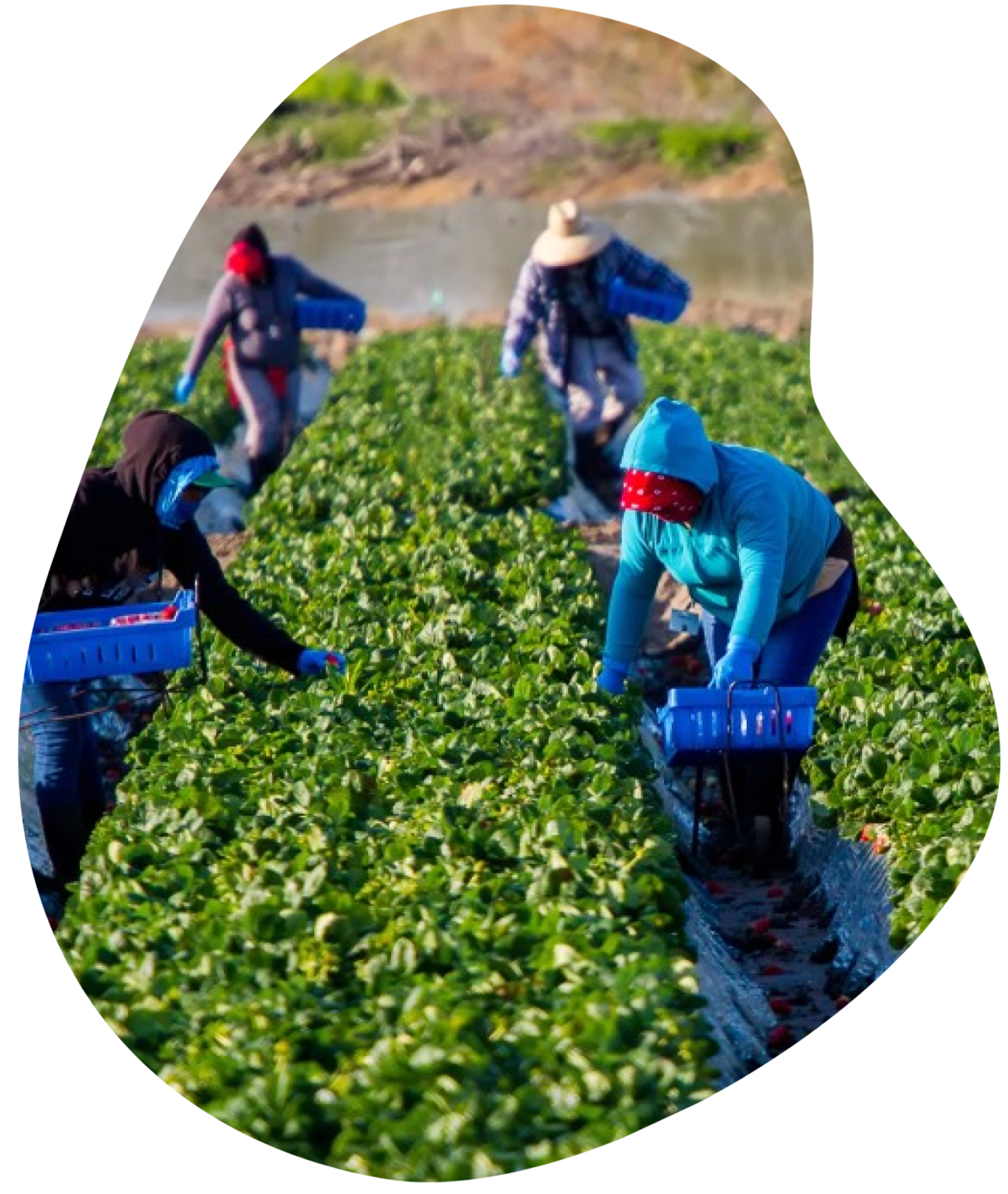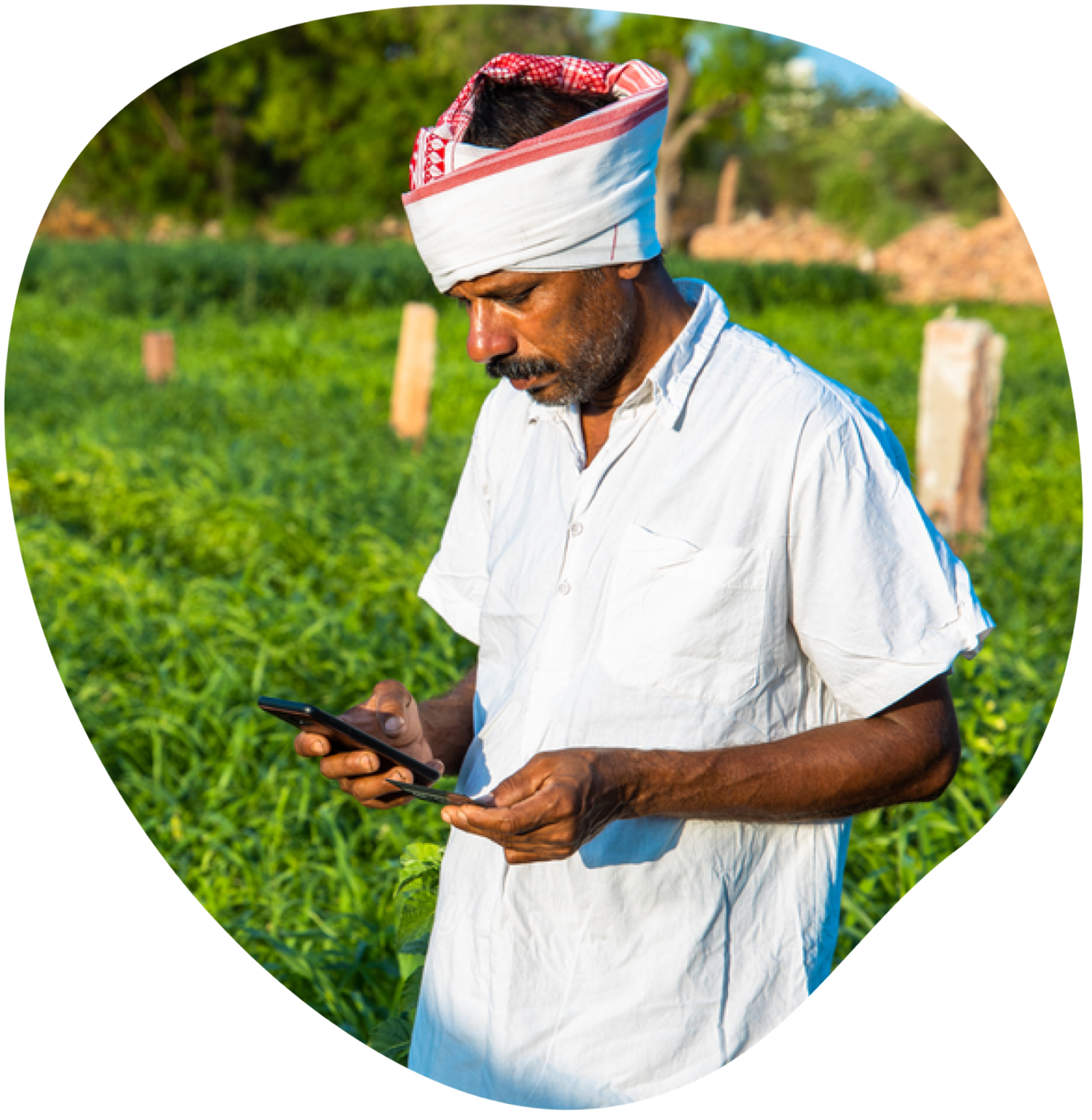Ulula in Agriculture
Engage farm-level workers, reach smallholder settings, conduct remote risk assessments

Agriculture
The agriculture sector depends on more than one billion workers worldwide. In some developing countries, agriculture even contributes up to two-thirds of GDP. Workers in Africa and Asia are especially dependent on the sector, where employment in agriculture makes up 49% and 30.5% of the workforce, respectively. Often seasonal and precarious, sometimes remote — agricultural workers face complexities that make its conditions difficult to monitor, investigate and regulate.
Agriculture
The agriculture sector depends on more than one billion workers worldwide. In some developing countries, agriculture even contributes up to two-thirds of GDP. Workers in Africa and Asia are especially dependent on the sector, where employment in agriculture makes up 49% and 30.5% of the workforce, respectively. Often seasonal and precarious, sometimes remote — agricultural workers face complexities that make its conditions difficult to monitor, investigate and regulate.



How Ulula Supports Organizations in Agriculture
With Ulula, organizations connect to farm-level conditions, reaching smallholder settings, conducting remote risk assessments, even responding proactively to grievances for a breadth and depth of engagement that surpasses traditional assessment.
Over 98 million children work in the agriculture sector. Ulula’s solutions establish more effective detection systems, such as the child labor monitoring and remediation systems (CLMRS).
Counteracting Child Labor
Largely driven by poverty and lack of access to education, over 98 million children work in the agriculture sector. Participation is concentrated on remote smallholder farms, where traditional assessment methodologies are unable to identify child workers.
Ulula’s low-tech, multilingual platform — accessible offline and online — can facilitate farmer and supplier training to promote better detection, identification and reporting of child labor.
Clients can leverage on-demand insights provided by Ulula to respond quickly and get connected to partners on the ground, if necessary.


An estimated 164 million people worldwide are migrant workers. Ulula offers multilingual grievance mechanisms to communicate with workers throughout the migration journey.



Empowering Migrant Workers
Primarily motivated by economic and political incentives, migration exposes workers to risks such as recruitment fees, confiscation of identification documents and wage theft. With Ulula, organizations can deploy easy to use, multilingual grievance mechanisms to communicate with workers throughout recruitment, relocation and employment, connecting with workers when recruited in their home country.
The solution can also deliver digital resources to educate workers and enable them to advocate for their rights, whether via phone call, text or app.
Organizations can gain peace of mind by deploying frequent anonymous surveys tailored to monitor key risks such as living and working conditions, thus gaining real-time worker feedback and identifying, prioritizing and mitigating violations.
Empowering Migrant Workers
Primarily motivated by economic and political incentives, migration exposes workers to risks such as recruitment fees, confiscation of identification documents and wage theft. With Ulula, organizations can deploy easy to use, multilingual grievance mechanisms to communicate with workers throughout recruitment, relocation and employment, connecting with workers when recruited in their home country.
The solution can also deliver digital resources to educate workers and enable them to advocate for their rights, whether via phone call, text or app.
Organizations can gain peace of mind by deploying frequent anonymous surveys tailored to monitor key risks such as living and working conditions, thus gaining real-time worker feedback and identifying, prioritizing and mitigating violations.



Scaling Smallholder Farm Assessment
Organizations often find it costly to scale risk assessments across rural areas and smallholder farms. But limited insight into labor can increase social risks, resulting in reputational damage, high turnover and unexpected operational disruptions. Ulula enables organizations to conduct remote social and labor impact evaluations across large landscapes, reaching workers and stakeholders on any device, with or without internet connectivity and in any language.


Landscape assessments year-round
Landscape-wide digital surveys can be completed throughout the year providing continuous analytics on how smallholder farmers are performing against key indicators.


Access to new markets
This is not only effective and economical for organizations — but also offers an opportunity for farmers to reduce risk and gain access to new markets by demonstrating enhanced social practices.
The agriculture industry is the third most hazardous sector, globally. Ulula’s solution can deliver health and safety resources to remote workers on any device, in any language.
Improving Health and Safety
The agriculture industry is the third most hazardous sector, globally. Risks include exposure to pesticides and other agrochemicals, dehydration caused by lack of water and shade and inadequate health and safety training. Ulula’s solution can reach remote workers on any device, in any language.
Employers can share information regarding proper equipment use, how to handle agrochemicals and other essential training materials that help prevent accidents.
Managers and program leads easily update training materials on the Ulula platform. Materials can include video footage, audio files, text and images.
Surveys can help tailor training programs to a site’s specific needs and risks.


Supporting Seasonal Workers
Much of the agriculture sector relies on seasonal workers. As laborers come and go regularly, annual assessments prove too infrequent to provide an accurate assessment of ongoing work conditions, and too untimely to provide actionable insights to support meaningful improvements. Ulula’s technology solutions supplement traditional assessments with regularly-collected and readily-accessible insights.


Frequent insights to reveal risks
Ongoing surveys, designed to reveal region and product specific risks, can empower organizations, certification bodies and farmers with insights to effectively remedy infractions and improve labor conditions.


Ongoing engagement
Increased direct communication with seasonal workers can enhance engagement, decrease turnover, improve health and safety training, mitigate labor risks, reduce costs of compliance and support food supply chains.


Resources in any language
Workers can access resources in their preferred language to learn about their rights and the responsibilities of their employers.
The Impact of COVID-19 on Workers in Agriculture
Government efforts to limit the spread of the coronavirus have resulted in significant repercussions impacting migrant workers and the agriculture sector. Restrictions such as travel bans and closed borders have revealed the vital role migrant workers play in ensuring food availability. Despite their contribution to the stability of daily life, migrant workers have experienced lost wages and remittances for their families, uncertain employment, potentially more dangerous working conditions and higher risks of contracting the virus.
According to the IOM, as new policies are adopted to address labor shortages, increased communication and engagement with migrant workers are critical to mitigating risk and ensuring health and safety.
With Ulula, you can:
Quickly and remotely deliver digital health and safety protocols and updates to workers to control spread
Gather worker feedback on the adoption of health and safety protocols to measure effectiveness
Enable workers to submit concerns and anonymously speak to a representative about new protocols and changes in the workplace
Ulula Across Sectors
See how Ulula solutions address challenges across other sectors.
Connect with rights holders at the farm-level
Get in touch to learn how Ulula solutions can support your organization’s stakeholder engagement goals in the agriculture sector.







